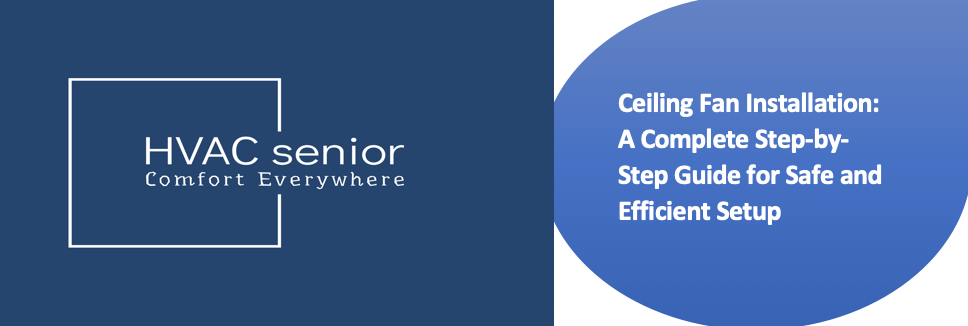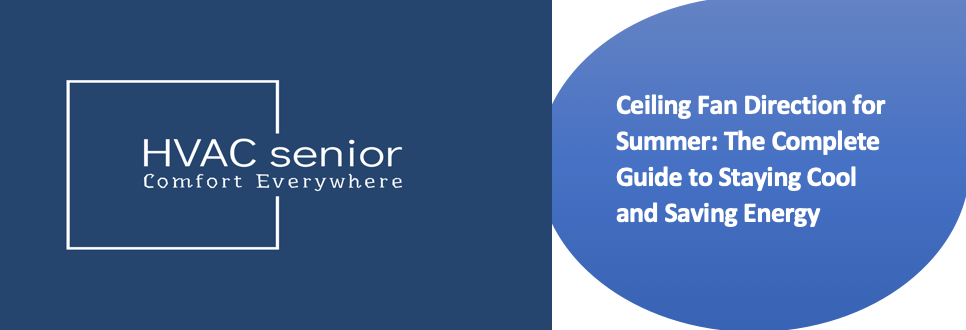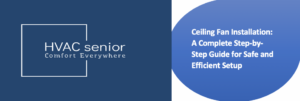Air Conditioner Not Blowing Cold Air? Find out why and how to fix it.
A story as old as HVAC systems goes: When a summer heat wave strikes, all you want to do is hide inside your home, where the air is comfortable and cool. But what if your Air Conditioner Not Blowing Cold Air ?
Warm air being blown by an air conditioner is not only uncomfortable, but it can also result in stuffy spaces, poor air quality, and high indoor humidity.
At a glance: Air Conditioner Not Blowing Cold Air due to Thermostat Settings,Dirty Air Filter,Refrigerant Leak,Issues With Condenser Unit or Issues with Evaporator Coil.
But why is the air coming out of your AC warm? We have some fail-safe solutions, so it doesn’t matter what the reason is.
Related post>>>>AC unit blowing hot air outside.
You will understand how to repair your air conditioning system at the end of this essay, ensuring that your home remains cool and comfortable during the summer.
5 Reasons for Air Conditioner Not Blowing Cold Air
1.Thermostat Settings.
The thermostat settings are one of the most frequent causes of your ac not blowing cold air. Your air conditioner’s thermostat is its control panel, and if it’s not set properly, it could result in pain and ineffective cooling.
Verify that the thermostat is first adjusted to a comfortable temperature. Sometimes ignoring a misaligned thermostat setting is the simplest answer. Make sure it’s in the “Cool” or “AC” setting and not “Heat” or “Off.” For the AC to operate, the temperature setting must be lower than the ambient temperature in the room.
If changing the temperature doesn’t fix the problem, there can be a more complicated issue. A broken thermostat may incorrectly interpret the temperature, preventing the AC from turning on when it’s needed. Furthermore, a malfunctioning thermostat may be unable to connect with your air conditioner, causing the cooling process to be disrupted.
The position of the thermostat is also important. It may give false temperature readings if it is in full sunlight, close to heat sources, or in a drafty region, which will prevent your air conditioner from effectively dispersing cold air.
2.Dirty Air Filter.
When your air conditioner isn’t delivering cold air, a dirty air filter is frequently the blame. It may look like a straightforward part, but its importance in preserving the efficiency of your air conditioner cannot be overstated.
Your cooling system may suffer if the air filter gets clogged up with dust and other particles.
The main job of the air filter is to capture airborne contaminants like dust, pollen, and pet dander and keep them from moving through the air in your house.
However, the filter loses its effectiveness with time as it gathers more and more dirt. Your AC may not blow cold air as a result of a number of problems.
First off, improper airflow is impeded by a clogged air filter, making it challenging for the system to suck in enough air for cooling.
Your AC unit may have to work harder due to restricted airflow, which can increase energy use and decrease cooling effectiveness.
When the condition is severe, the AC unit may freeze from a lack of ventilation, making the situation worse.
Additionally, the accumulation of material on the air filter may put stress on the AC’s parts, possibly resulting in malfunctions or even system failure.
Uncomfortable conditions and increased energy costs may arise when your air conditioner is unable to efficiently cool the air.
Also read>>>>Air Conditioner Keeps Turning On & Off.
3.Refrigerant Leak.
When your air conditioner isn’t blowing cold air, it’s likely because of a refrigerant leak, a serious problem that hinders the cooling process.
Your air conditioning system depends on refrigerant to provide cold, comfortable air inside your home by absorbing heat from interior air and dissipating it outside.
This essential cooling cycle is disturbed when a refrigerant leak occurs. The vital refrigerant can leak when the refrigerant lines, which are in charge of circulating the refrigerant, develop minute gaps or cracks.
The AC unit is unable to efficiently absorb heat from the inside air as a result.
The air conditioner’s ability to cool the air is greatly hampered by a lack of sufficient refrigerant. The temperature in your home will continue to be very high, and you’ll notice warm air streaming from the unit.
The AC system will have a difficult time maintaining a constant temperature, which will make it ineffective and may require it to operate continuously.
A refrigerant leak can also result in a number of additional problems, including as higher energy use, possible compressor failure, and system ice, which can reduce cooling effectiveness even further.
4.Issues With Condenser Unit.
One of the most disregarded causes of your air conditioner not blowing cold air could be problems with the condenser unit outside your house.
This exterior device is essential to the cooling process because it allows the refrigerant to efficiently cycle back inside and cool your home by dissipating heat from it.
A clogged condenser coil is one of the condenser unit’s common issues. On the coil’s fins, dirt, debris, leaves, and other outside components can build up over time, impeding airflow and reducing the coil’s ability to exchange heat.
This impediment makes it difficult for the refrigerant to adequately dissipate heat, which makes the air conditioner work harder to cool it.
As a result, rather than the cooling freshness you anticipate, heated air will be released from your air conditioner. The efficiency of the system declines, and it may even result in higher energy usage as the AC works harder to make up for the decreased heat exchange.
Also read>>>>>Air conditioner makes whooshing noise.
5.Issues with Evaporator Coil.
Problems with the evaporator coil, a vital part of your cooling system found inside your interior unit, may be the cause of your air conditioner not blowing cold air.
The indoor air is heated by the evaporator coil, which then allows the refrigerant to cool it and create the cool, refreshing air you want.
The buildup of dirt and debris over time is a typical issue with the evaporator coil. The coil can’t absorb heat effectively when impurities accumulate on it.
This may result in a reduction in cooling capacity, leading your air conditioner to blow warm air instead of chilly.
Furthermore, condensate freezing may result from a filthy evaporator coil. The air gets dried out by the coil as it is cooled.
Condensate can freeze on the coil’s surface if it is very unclean or if airflow is constrained, thus reducing the coil’s capacity to chill the air.
A damaged evaporator coil might need to be replaced in specific circumstances. Warm air is circulated into your home when the coil is damaged since it can’t efficiently carry out its heat exchange function.
Also read>>>>Window Air Conditioner Maintenance Checklist.
Fixes for Air Conditioner not Blowing Cold Air.
1.Change Thermostat Batteries.
Replace the batteries in your thermostat as a quick, though frequently missed, fix for an AC that isn’t blowing chilly air.
Your thermostat, which acts as the control panel for regulating temperature and cooling your home, is crucial in managing your central air conditioning system.
It can cause a variety of problems if the batteries are low and it isn’t working properly.
An AC unit that isn’t working properly can be alarming, but occasionally the issue isn’t with the air conditioner at all, but rather with the control panel and, more precisely, the batteries inside of it.
The control panel is powered by the thermostat batteries, enabling communication with your AC unit. Your thermostat can stop working or give false temperature readings when these batteries are low or dead.
As a result, your AC system might not get the proper instructions to efficiently cool your home. Changing the thermostat batteries is a simple and affordable solution that frequently works to remedy the AC not blowing cold air problem.
It makes sure that the thermostat and the air conditioner are properly communicating, which restores your cooling comfort and avoids needless service calls or pricey repairs.
Therefore, before looking into more involved solutions when you run into this issue, start by checking and changing the batteries in your thermostat.
2.Clean The Air Filters and Coils.
Maintaining your AC system and preventing the aggravating problem of AC not blowing cold air requires regularly cleaning the air filters and condenser coils.
Neglecting these parts may result in decreased cooling effectiveness and increased energy usage.
Let’s start by concentrating on the air filters. As a result, it may be more difficult for your air conditioner to draw in and cool the air when air filters are dirty.
The system can’t operate at peak efficiency when airflow is constrained, which prevents the AC from blowing cold air. A cheap fix is to clean these filters with soap and water.
They are kept clean and clear of debris through routine maintenance, ideally every two weeks, which encourages effective cooling.
Let’s talk about the outside unit’s condenser coils now. These coils are in charge of releasing heat from the refrigerant so that it can chill your home by cycling back inside. Condenser coil insulation caused by dirt and dust accumulation might lower heat exchange efficiency.
This accumulation may be removed by giving them a brush and some water, ensuring that your AC can expel heat efficiently.
For safety reasons, remember to unplug your air conditioner before cleaning these parts.
In addition to avoiding the problem of your ac not blowing cold air, you can extend the life of your equipment, lower your energy costs, and experience consistent cooling comfort throughout the warmer months by keeping your air filters and condenser coils clean.
3.Go for Air Conditioner General Cleaning and Maintenance.
Scheduling routine general cleaning and maintenance for your air conditioner is crucial for reliable cooling and to prevent the dreaded problem of AC not blowing cold air.
No matter if you have a mini-split, window, or central air conditioning unit, these systems benefit immensely from expert care to guarantee they perform at their very best.
Regular maintenance extends beyond simply cleaning visible components like filters and coils, which is normally advised every six months.
HVAC specialists are qualified to examine and resolve problems with interior components that the average homeowner might not notice.
They can spot possible issues and fix them before they become more serious, ensuring that your air conditioning system runs efficiently.
Checking refrigerant levels, looking over electrical connections, calibrating thermostats, lubricating moving parts, and cleaning or changing air filters and condenser coils as necessary are all part of routine maintenance.
These proactive measures not only stop the AC from producing warm air, but they also increase system performance, increase equipment longevity, and lower energy usage.
Checking refrigerant levels, looking over electrical connections, calibrating thermostats, lubricating moving parts, and cleaning or changing air filters and condenser coils as necessary are all part of routine maintenance.
These proactive measures not only stop the AC from producing warm air, but they also increase system performance, increase equipment longevity, and lower energy usage.
Also read>>>>Air Conditioner Leaking Freon.
4.Clear Vents from Blockage.
To guarantee that your AC runs effectively and does not succumb to the aggravating problem of AC not blowing cold air, clearing vents of obstructions is an essential step.
Your air conditioner needs the proper airflow to operate at its best.
First, regularly check and clean the filters and vents within. Your home’s vents and filters may collect dust and debris over time, preventing the flow of cool air.
If these vents are blocked, your air conditioner has a difficult time distributing cold air into your living areas, which results in insufficient cooling.
For the purpose of cleaning out the dust and debris from inside vents, use a vacuum with a brush attachment.
To maintain unhindered airflow, air filters must also be changed or cleaned as instructed by the manufacturer. In addition to obstructing cooling, a clogged filter puts stress on the parts of your air conditioner.
Vents outside are also crucial. Around the outside unit, debris like dust, dried leaves, and larger particles can build up and prevent it from drawing in air for cooling.
As a result, efficiency may suffer, and finally, the air conditioner may stop pumping cold air.
Check and clean exterior vents frequently to maintain proper airflow. To clear the area around the outside unit of debris, use a long stick or a vacuum.
To ensure comfort in hot weather, keep both indoor and outdoor vents free of obstructions to enhance effective cooling, ease the load on your air conditioning system, and lessen the likelihood that the AC won’t blow cold air.
Frequently Asked Questions (FAQs)
Why is my AC not blowing cold air?
Your AC may not be blowing cold air due to various reasons, including a dirty air filter, issues with the thermostat settings, refrigerant leaks, a clogged condenser unit, a malfunctioning evaporator coil, or depleted thermostat batteries.
Regular maintenance and checks can help address and prevent these issues.
Can I clean the air filter myself to fix the problem of AC not blowing cold air?
Yes, you can clean the air filter at home with soap and water, but it’s essential to clean it regularly, ideally every two weeks. However, some AC problems may require professional attention beyond filter cleaning.
How often should I schedule general cleaning and maintenance for my AC unit?
It’s recommended to schedule professional general cleaning and maintenance for your AC system once every six months. HVAC professionals can identify and address potential issues, ensuring your AC runs smoothly and avoids problems like AC not blowing cold air.
Can I fix a refrigerant leak myself to resolve AC not blowing cold air?
Refrigerant issues should be handled by experienced HVAC professionals. Attempting to fix a refrigerant leak without proper training and equipment can be dangerous and may lead to further problems.
What can I do if my thermostat is unresponsive and causing the AC not to blow cold air?
Check and replace the thermostat batteries as they may be depleted. Properly functioning thermostat batteries are crucial for effective communication with your AC unit.
How can I prevent my AC from not blowing cold air due to condenser coil issues?
Regularly clean the condenser coils in the outdoor unit to remove dirt and debris that can obstruct airflow. This helps maintain efficient cooling and prevents AC problems.
Are there DIY steps I can take to troubleshoot AC issues before calling a technician?
Yes, you can perform some basic checks like cleaning air filters, clearing vents, and adjusting thermostat settings.
However, for more complex issues or if these steps don’t resolve the problem, it’s advisable to consult an HVAC professional to avoid potential damage and ensure your AC blows cold air reliably.
Conclusion
In conclusion, keeping your air conditioning system in good working order is essential to ensuring your comfort during the sweltering summer months.
The frustrating problem of an ac not blowing cold air might be caused by any of the frequently mentioned problems, including filthy air filters, refrigerant leakage, thermostat troubles, and blocked coils.
Homeowners can take proactive measures to avoid these problems by routinely cleaning filters, vents, and coils, as well as changing the batteries in their thermostat.
However, relying on skilled HVAC professionals is essential for more complicated issues or when professional maintenance is required.
You may enjoy reliable cooling by emphasising good AC maintenance, which will keep your house cozy and energy-efficient.









